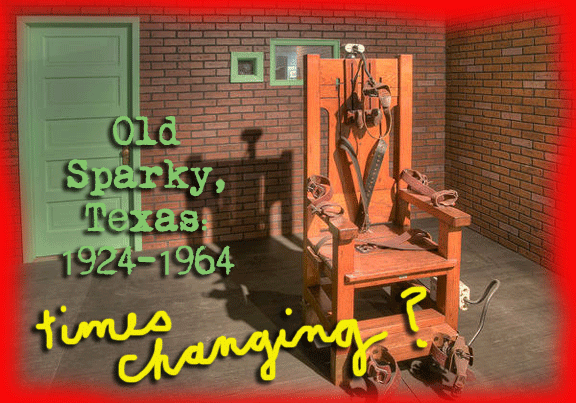by Taylor Walker

CHANGING THEIR MINDS ON THE DEATH PENALTY
Two champions of California’s original 1978 capital punishment initiative are now campaigning for a new initiative—this one to revoke the death penalty, substituting life without parole. It is expected to be on the state’s ballot this November. The NY Times’ Adam Nagourney has the story.
Here’s a clip:
…The campaign [for California’s 1978 death penalty initiative] was run by Ron Briggs, today a farmer and Republican member of the El Dorado County Board of Supervisors. It was championed by his father, John V. Briggs, a state senator. And it was written by Donald J. Heller, a former prosecutor in the New York district attorney’s office who had moved to Sacramento.
Thirty-four years later, another initiative is going on the California ballot, this time to repeal the death penalty and replace it with mandatory life without parole. And two of its biggest advocates are Ron Briggs and Mr. Heller, who are trying to reverse what they have come to view as one of the biggest mistakes of their lives.
Partly, they changed their minds for moral reasons. But they also have a political argument to make.
Read the rest.
WHEN MENTALLY ILL PEOPLE REFUSE CARE…WHAT THEN?
Lee Romney of the LA Times tells of a new report from a state task force that calls for significant changes in California’s mental health laws, some of which are bound to be very controversial. Here’s a clip:
Tens of thousands of mentally ill people wind up each year in California jails and prisons, cycle in and out of overburdened hospital emergency rooms or die on the streets.
California’s pioneering Lanterman-Petris-Short Act, passed in 1967, gave legal rights to those who previously could have been locked up indefinitely and treated against their will. But the task force — made up of family members, mental health professionals, judges and public defenders — contends that the law has failed those unable or unwilling to seek help.
They are calling for sweeping changes that would allow the involuntary commitment of those deemed incapable of making treatment decisions, expand the use of conservatorships, lengthen involuntary hospital stays and standardize the checkerboard way the law has been applied from county to county.
[SNIP]
Furthermore, they note, jails, prisons and repeated brief hospital confinements end up delivering involuntary care regardless — at great cost.
“I’d go so far as to say that involuntary treatment has increased since implementation” of the act,said Randall Hagar, a task force member and director of government affairs for the California Psychiatric Assn.
Nearly 200,000 people in California get their outpatient services every year in a jail setting,” he said. “Something is really wrong with this picture.”
THE DAMAGE DONE BY THE DESIGNATION OF “DEFIANCE”
Reporting for the Huffington Post Christina Hoag looks at the excessive use of suspensions for the all-purpose term of “defiance” and what that means for minority students.
Here’s how it opens:
School suspensions were once reserved for serious offenses including fighting and bringing weapons or drugs on campus. But these days they’re just as likely for talking back to a teacher, cursing, walking into class late or even student eye rolling.
More than 40 percent of suspensions in California are for “willful defiance,” or any behavior that disrupts class, and critics say it’s a catchall that needs to be eliminated because it’s overused for trivial offenses, disproportionately used against black and Latino boys and alienates the students who need most to stay in school.
“It’s so broad it’s not useful,” said Marqueece Harris-Dawson, president and chief executive of the nonprofit South Los Angeles Community Coalition. “You can’t quite define what it means, what it doesn’t mean.”
Assemblyman Roger Dickinson (D-Sacramento) earlier this year introduced a bill to remove willful defiance as a reason for suspension and expulsion. His bill, AB 2242, would replace that category with specific behaviors such as harassment, threats, intimidation, creating substantial disorder or a hostile environment.
Read the rest.
